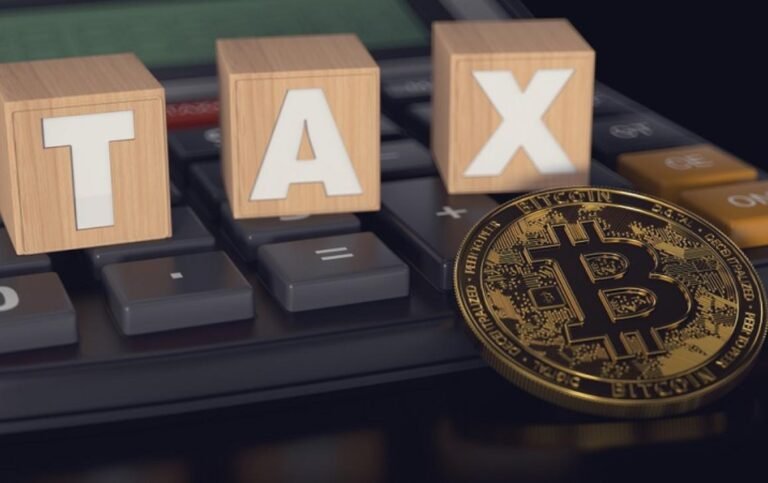The year 2025 has brought significant changes to the cryptocurrency tax landscape, making bitcoin tax implications news 2025 a critical topic for every digital asset investor. With the introduction of new IRS reporting requirements, updated tax forms, and evolving regulations, understanding these changes is essential for compliant tax filing and strategic investment planning.
This comprehensive guide covers the most important bitcoin tax implications news 2025 developments, including the mandatory Form 1099-DA reporting, updated capital gains rules, and new compliance requirements that affect millions of cryptocurrency holders. Whether you’re a seasoned Bitcoin investor or new to digital assets, staying informed about these tax changes will help you avoid costly mistakes and optimize your tax strategy.
The regulatory environment for cryptocurrency taxation has evolved rapidly, with 2025 marking a pivotal year for enhanced reporting requirements and clearer IRS guidance. These changes represent the most significant updates to cryptocurrency tax regulations since Bitcoin’s mainstream adoption.
New Form 1099-DA Requirements for Bitcoin Tax Implications News 2025
The most significant change in bitcoin tax implications news 2025 is the introduction of Form 1099-DA, which requires crypto brokers like Coinbase to report gross proceeds from cryptocurrency sales and exchanges beginning January 1, 2025. This new reporting requirement fundamentally changes how cryptocurrency transactions are tracked and reported to the IRS.
Understanding Form 1099-DA Implementation
Brokers are required to start issuing 1099-DA forms in early 2026 for the 2025 tax year, with the IRS providing transitional relief as platforms adjust to the new requirements. This form will capture essential transaction data that was previously self-reported by investors.
The Form 1099-DA includes several key data points:
- Gross proceeds from digital asset sales and exchanges
- Transaction dates and types
- Broker identification information
- Customer account details
Cost Basis Reporting Changes
For digital assets acquired on or after January 1, 2025, Form 1099-DA will report the cost basis, while assets acquired before this date must rely on previous tax reports and safe harbor guidance from Revenue Procedure 2024-28. This creates a bifurcated system that requires careful record-keeping.
Investors must maintain detailed records for pre-2025 acquisitions while relying on broker reporting for newer purchases. This transition period requires additional attention to documentation and record-keeping practices.
Updated Capital Gains and Tax Rates for 2025

The 2025 tax year brings updated capital gains rates and thresholds that directly impact Bitcoin investors. Understanding these rates is crucial for tax planning and investment decision-making.
Short-Term vs Long-Term Capital Gains
Bitcoin held for less than one year is subject to short-term capital gains tax, which is taxed as ordinary income at rates up to 37% for high earners. Long-term capital gains rates for 2025 remain at 0%, 15%, or 20%, depending on income levels.
The tax advantages of holding Bitcoin for more than one year remain significant, particularly for investors in higher tax brackets. This holding period requirement continues to influence investment strategies and timing decisions.
Annual Gift and Estate Tax Limits
For the tax year 2025, the annual gift tax limit increases to $19,000, while the lifetime exemption rises to $13.99 million. These increased limits provide additional planning opportunities for Bitcoin estate planning and wealth transfer strategies.
These higher thresholds allow for more aggressive estate planning strategies using Bitcoin and other digital assets, particularly for high-net-worth individuals seeking to transfer cryptocurrency holdings to beneficiaries.
IRS Relief Measures and Safe Harbor Provisions
The IRS has provided crypto relief for 2025, allowing crypto holders on centralized exchanges to bypass some strict tax regulations while preserving flexibility in reporting and tracking digital asset sales. These measures recognize the complexity of cryptocurrency taxation and provide practical solutions for compliance.
Revenue Procedure 2024-28 Guidance
The IRS issued Revenue Procedure 2024-28 to provide safe harbor provisions for cryptocurrency cost basis calculations. This guidance offers standardized methods for determining cost basis when complete records are unavailable.
Key provisions include:
- Acceptable methods for reconstructing transaction history
- Safe harbor calculations for cost basis determination
- Transitional relief for incomplete records
- Standardized approaches for exchange rate calculations
Transitional Relief for 2025
The first year of Form 1099-DA implementation includes transitional relief provisions recognizing that complete reporting may not be immediately available. This relief provides flexibility during the adjustment period while maintaining compliance requirements.
Bitcoin Mining and Staking Tax Updates
Crypto mining continues to be taxable as ordinary income, with the IRS typically considering mining a business activity that allows for business expense deductions. The 2025 tax year maintains these fundamental principles while providing clearer guidance on deductible expenses.
Mining Income Recognition
Mining rewards are taxable at fair market value when received, creating immediate tax liability regardless of whether the Bitcoin is subsequently held or sold. This creates cash flow considerations for miners who hold their rewards.
Deductible mining expenses include:
- Equipment costs and depreciation
- Electricity and utility costs
- Pool fees and transaction costs
- Home office expenses for residential miners
Staking Reward Taxation
Staking rewards are subject to taxation, though the IRS doesn’t typically classify staking as a business activity like mining. This distinction affects the types of deductions available and the reporting requirements.
Staking rewards are generally taxed as ordinary income at fair market value when received, similar to mining rewards but without the business expense deduction opportunities.
Microtransaction Exemption Developments
There has been a renewed push from the cryptocurrency industry in 2025 to include a tax exemption for microtransactions, recognizing the practical challenges of tracking small-value transactions for tax purposes.
Industry Advocacy Efforts
The cryptocurrency industry continues to advocate for de minimis exemptions that would exclude small transactions from taxable events. These efforts focus on practical compliance challenges and the administrative burden of tracking minimal-value transactions.
Proposed exemption thresholds vary but generally focus on transactions under $200 or similar amounts that would not materially impact tax revenue while significantly reducing compliance burdens.
Current Reporting Requirements
Until exemptions are enacted, all cryptocurrency transactions remain potentially taxable events, regardless of size. This includes using Bitcoin for purchases, regardless of the transaction amount. Current law requires tracking and reporting all dispositions of cryptocurrency, creating significant record-keeping requirements for active users of Bitcoin as a medium of exchange.
Also Read: Privacy Altcoins Investment Strategy Complete Guide to Anonymous Crypto Investing 2025
Charitable Deduction Opportunities
Bitcoin donations to registered charities offer several tax benefits since they are not considered a taxable disposal, and donors can deduct the value of their donation from their tax return. These strategies provide tax-efficient methods for charitable giving while supporting worthy causes.
Direct Donation Benefits
Donating Bitcoin directly to qualified charities avoids capital gains tax on appreciation while providing a charitable deduction for the full fair market value. This strategy is particularly beneficial for highly appreciated Bitcoin holdings.
The donation must be made directly to the charity rather than selling Bitcoin and donating cash to maximize tax benefits. This approach eliminates the capital gains tax that would otherwise be owed on the sale.
Donor-Advised Funds
Donor-advised funds offer additional flexibility for Bitcoin charitable giving, allowing donors to contribute Bitcoin for immediate tax deductions while retaining advisory privileges over grant distributions over time.
Record-Keeping and Compliance Best Practices
Effective record-keeping becomes increasingly important with enhanced IRS reporting requirements and the introduction of Form 1099-DA. Proper documentation protects against audits and ensures accurate tax reporting.
Essential Documentation Requirements
Comprehensive Bitcoin tax records should include:
- Purchase and sale dates with timestamps
- Transaction amounts in both Bitcoin and USD
- Exchange rates at transaction times
- Wallet addresses and transaction IDs
- Cost basis calculations and methodologies
- Form 1099 documents from exchanges and brokers
Software Solutions and Tools
Tax preparation software specifically designed for cryptocurrency can automate much of the record-keeping and calculation process. These tools integrate with major exchanges and wallets to import transaction data automatically.
Popular solutions offer features including:
- Automatic exchange integrations
- Cost basis calculations using various methods
- Tax loss harvesting identification
- Form 8949 preparation and filing
- Audit trail documentation
State Tax Considerations and Variations
State tax treatment of Bitcoin varies significantly across jurisdictions, with some states offering favorable treatment while others impose additional requirements or restrictions.
State-Level Compliance Requirements
Several states have implemented or are considering specific cryptocurrency tax legislation that may differ from federal requirements. Investors must consider both federal and state obligations when planning their tax strategy.
States with no income tax generally provide the most favorable environment for Bitcoin capital gains, while high-tax states may impose significant additional burdens on cryptocurrency profits.
Multi-State Considerations
Bitcoin investors with holdings across multiple states or those who relocate during the tax year face complex compliance requirements. Proper planning can minimize multi-state tax obligations while ensuring compliance.
International Reporting Requirements

Bitcoin holdings and transactions may trigger international reporting requirements, particularly for high-value accounts or foreign exchange usage.
FBAR and FATCA Compliance
Foreign Bitcoin accounts may require reporting under the Foreign Bank Account Report (FBAR) or Foreign Account Tax Compliance Act (FATCA) if they meet threshold requirements. These obligations apply regardless of whether income is generated.
The IRS has indicated that cryptocurrency held on foreign exchanges may trigger these reporting requirements, though specific guidance remains limited.
Foreign Exchange Considerations
Using foreign cryptocurrency exchanges may create additional compliance complexities, including currency conversion requirements and foreign transaction reporting.
Planning Strategies for Bitcoin Tax Optimization
Strategic planning can minimize Bitcoin tax obligations while maintaining compliance with all applicable requirements. Effective strategies consider timing, holding periods, and optimization techniques.
Tax Loss Harvesting
Bitcoin’s volatility creates opportunities for tax loss harvesting, where investors sell positions at losses to offset gains elsewhere in their portfolio. Unlike traditional securities, cryptocurrency is not subject to wash sale rules, providing additional flexibility.
Careful timing of loss realization can significantly reduce overall tax obligations while maintaining desired portfolio exposure through strategic repurchasing.
Long-Term Holding Strategies
Maintaining Bitcoin positions for more than one year converts ordinary income tax rates to preferential capital gains rates, potentially saving significant amounts for investors in higher tax brackets.
Professional Guidance and Expert Resources
The complexity of bitcoin tax implications news 2025 makes professional guidance increasingly valuable for serious cryptocurrency investors.
When to Seek Professional Help
Consider professional tax guidance when:
- Annual cryptocurrency transactions exceed $10,000
- Multiple exchanges or wallets are involved
- International transactions or accounts exist
- Business activities involving cryptocurrency occur
- Complex strategies like staking or mining are employed
Choosing Qualified Professionals
Select tax professionals with specific cryptocurrency expertise and current knowledge of evolving regulations. General tax preparers may lack the specialized knowledge required for complex Bitcoin tax situations.
Conclusion
The bitcoin tax implications news 2025 represents a watershed moment for cryptocurrency taxation, with new reporting requirements, enhanced IRS oversight, and evolving compliance obligations. The introduction of Form 1099-DA, updated safe harbor provisions, and transitional relief measures create both opportunities and challenges for Bitcoin investors.
Staying informed about these developments is essential for maintaining compliance while optimizing your tax strategy. The complexity of current regulations and the rapid pace of change make professional guidance increasingly valuable for serious cryptocurrency investors.
As bitcoin tax implications news 2025 continues to evolve, regular monitoring of regulatory updates and proactive planning will be key to successful cryptocurrency tax management. Consider consulting with qualified tax professionals who specialize in digital assets to ensure your strategy aligns with current requirements and takes advantage of available opportunities.


